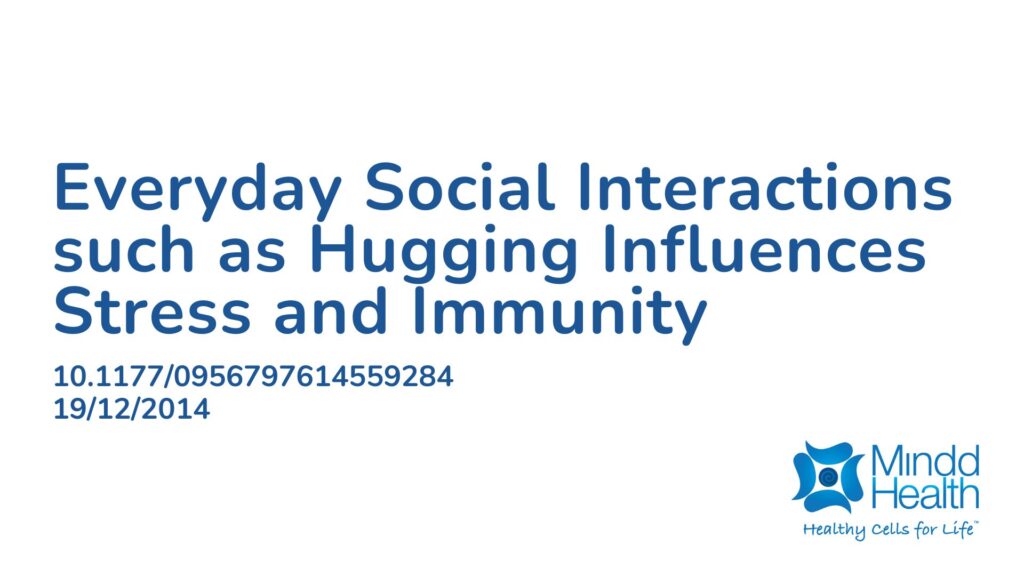Summary:
A large body of research suggests that strong social ties can protect against the harmful effects of stress, but the precise mechanisms remain unclear. One proposed pathway is through everyday physical expressions of support, such as hugging. In a study of 404 healthy adults, researchers explored whether perceptions of being supported and the actual receipt of hugs reduced vulnerability to illness following stress. Participants first completed questionnaires on perceived social support. Over the next two weeks, they reported daily experiences of interpersonal conflict and whether they received hugs. Following this, all individuals were deliberately exposed to a virus that causes the common cold and monitored in quarantine for signs of infection and illness severity. Findings indicated that people who felt more supported were less likely to develop stress-related increases in infection risk. Hugs played a notable role in this relationship, accounting for about a third of the protective effect of perceived support. Importantly, among those who did become infected, both higher perceived support and more frequent hugs predicted milder symptoms and less severe illness. These results suggest that hugging is not simply a gesture of comfort, but may serve as a tangible channel through which social support exerts biological effects. The mechanism may involve reductions in stress responses such as cortisol release and improved regulation of immune function. This evidence highlights the potential for everyday social behaviors to influence resilience against illness.
Abstract:
Perceived social support has been hypothesized to protect against the pathogenic effects of stress. How such protection might be conferred, however, is not well understood. Using a sample of 404 healthy adults, we examined the roles of perceived social support and received hugs in buffering against interpersonal stress-induced susceptibility to infectious disease. Perceived support was assessed by questionnaire, and daily interpersonal conflict and receipt of hugs were assessed by telephone interviews on 14 consecutive evenings. Subsequently, participants were exposed to a virus that causes a common cold and were monitored in quarantine to assess infection and illness signs. Perceived support protected against the rise in infection risk associated with increasing frequency of conflict. A similar stress-buffering effect emerged for hugging, which explained 32% of the attenuating effect of support. Among infected participants, greater perceived support and more-frequent hugs each predicted less-severe illness signs. These data suggest that hugging may effectively convey social support.
Article Publication Date: 19/12/2014
DOI: 10.1177/0956797614559284



